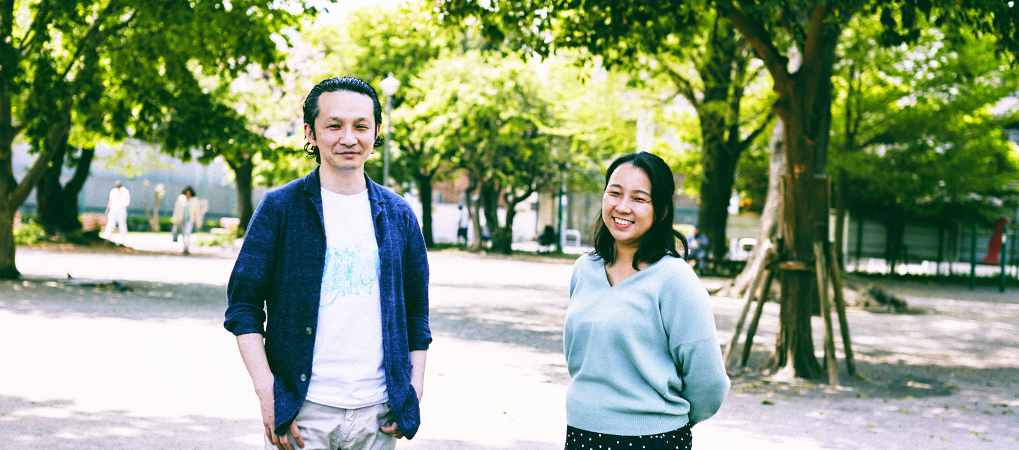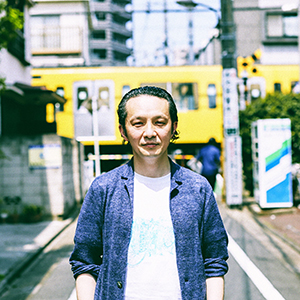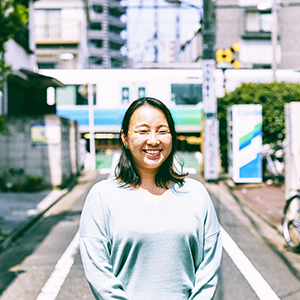Directors’ Message

Body Speed
Our bodies have speed.
Over the past few centuries (or indeed, ever since ancient times), we have sought speed. Speed in movement. Speed in knowledge. Speed in acquisition. And there is no doubt that the ceaseless pursuit of this desire has resulted in making our lives significantly faster and more efficient and convenient.
However, it is also evident that our bodies are crying out in response to this increasingly accelerated world. Within the last few years, the speed of information has risen yet further and, in consequence, our reactions have become more emotional and instantaneous, even though the actual speed of our bodies has not really changed. After all is said and done, our bodies as physical objects still require time to move or grow.
So how about slowing things down? No, it’s not as simple as that. Especially in the case of a metropolis like Tokyo, any attempt to decelerate everything would be patently absurd. In the first place, our bodies don’t all have the same speeds. We are sometimes fast and sometimes slow. There are young bodies as well as old ones. Moreover, this immense city is a composite of infinite coexisting variations and gradations of speed, where the speed of bodies is joined by the speeds of things that are not human, by speeds that do not belong to bodies.
While the performing arts do not create works of art that remain behind as objects somewhere, they examine our lives at the speed of the body, through the things that emerge from our bodies. Is it possible, then, to envision the city through the performing arts, even if for just a fleeting moment? The festival is a time for doing this.
Kaku Nagashima (Director), Chika Kawai (Co-Director)
Profiles

-
Kaku Nagashima
Born in Tokyo in 1969, Kaku Nagashima graduated with a degree in French literature from Rikkyo University. During graduate studies, he began to research and translate the later prose of Samuel Beckett. His involvement with theatre came first as a performance surtitles operator and script translator. A pioneering dramaturge in Japan, he has worked with a wide range of directors and choreographers in that capacity. His recent concerns have seen him seek ways to take theatre ideas and know-how outside regular theatre spaces, involving him with various art projects. His major theatre credits include “Atomic Survivor” (directed by Hatsumi Abe, TIF 2007), “4.48 Psychosis” (directed by Norimizu Ameya, F/T09 Autumn), “The Marriage of Figaro” (directed by Tomo Sugao, Nissay Opera 2012), “The Opportunity of Efficiency” (directed by John McGrath, New National Theatre, Tokyo), and “Double Tomorrow” (directed by Fabien Prioville, Theatrical Group EN). His main credits for projects and works at non-theatre venues include the “House of Atreus” series and Kaku Nagashima’s How-To-Make-Laboratory (both for Tokyo Artpoint Project), “The World” (Kakuya Ohashi and Dancers), and “YAJIRUSHI” (Saitama Triennale 2016). He was appointed as the director of Festival/Tokyo in 2018. He is also a member of the Planning Team for Tokyo Festival since 2018 and a special invited professor at the Department of Musical Creativity and the Environment, Tokyo University of the Arts.

-
Chika Kawai
A graduate of Musashino Art University, Chika Kawai coordinates theatre premieres, domestic tours, and international co-productions. After experience working for a production company and as a freelancer, she joined NPO Arts Network Japan (NPO-ANJ) in 2007 and was part of the team organizing the opening of Kawasaki Art Center. Based on the center’s aspiration to be a theatre that both creates and disseminates the arts, she supervised newly commissioned work, visiting overseas productions, and a support program for young artists. For the first five years after the theatre opened she was additionally involved with the system design and management of the theatre. She transferred to the Festival/Tokyo Executive Committee Secretariat, which is run by NPO-ANJ, in 2012. She has since been involved with international co-productions and open-call programs aimed at young artists in Japan and the rest of Asia. Besides production coordination, she is also responsible for the management of the secretariat, helping to build partnerships with government bodies and the private sector as well as overseeing festival fundraising. She became vice director of Festival/Tokyo in 2015 and then co-director in 2018. She is a member of the Planning Team for Tokyo Festival since 2018 and also an adjunct instructor teaching theatre courses at Nihon University’s College of Art.